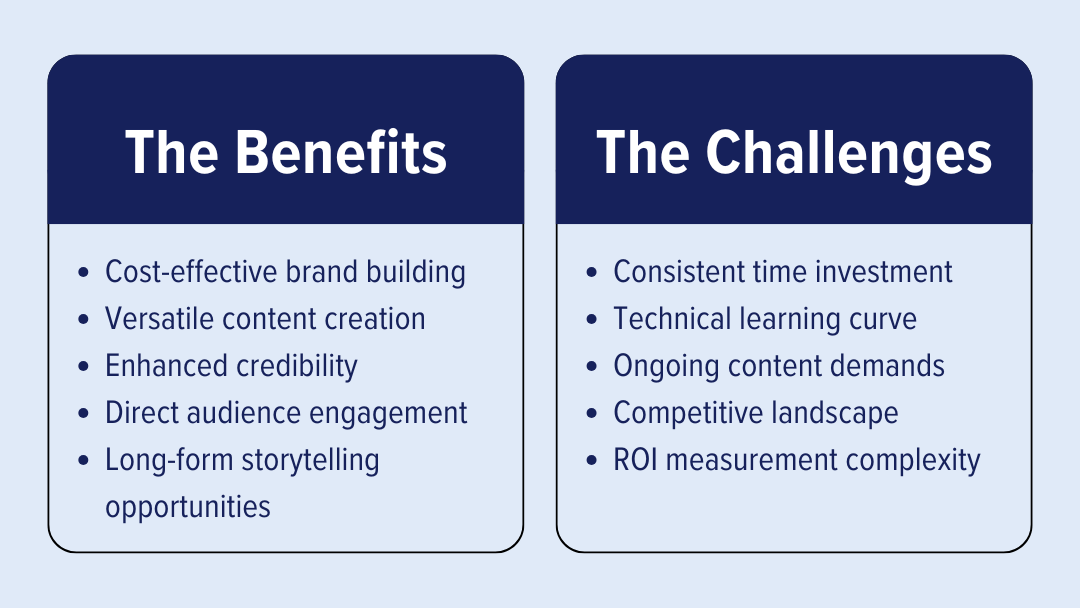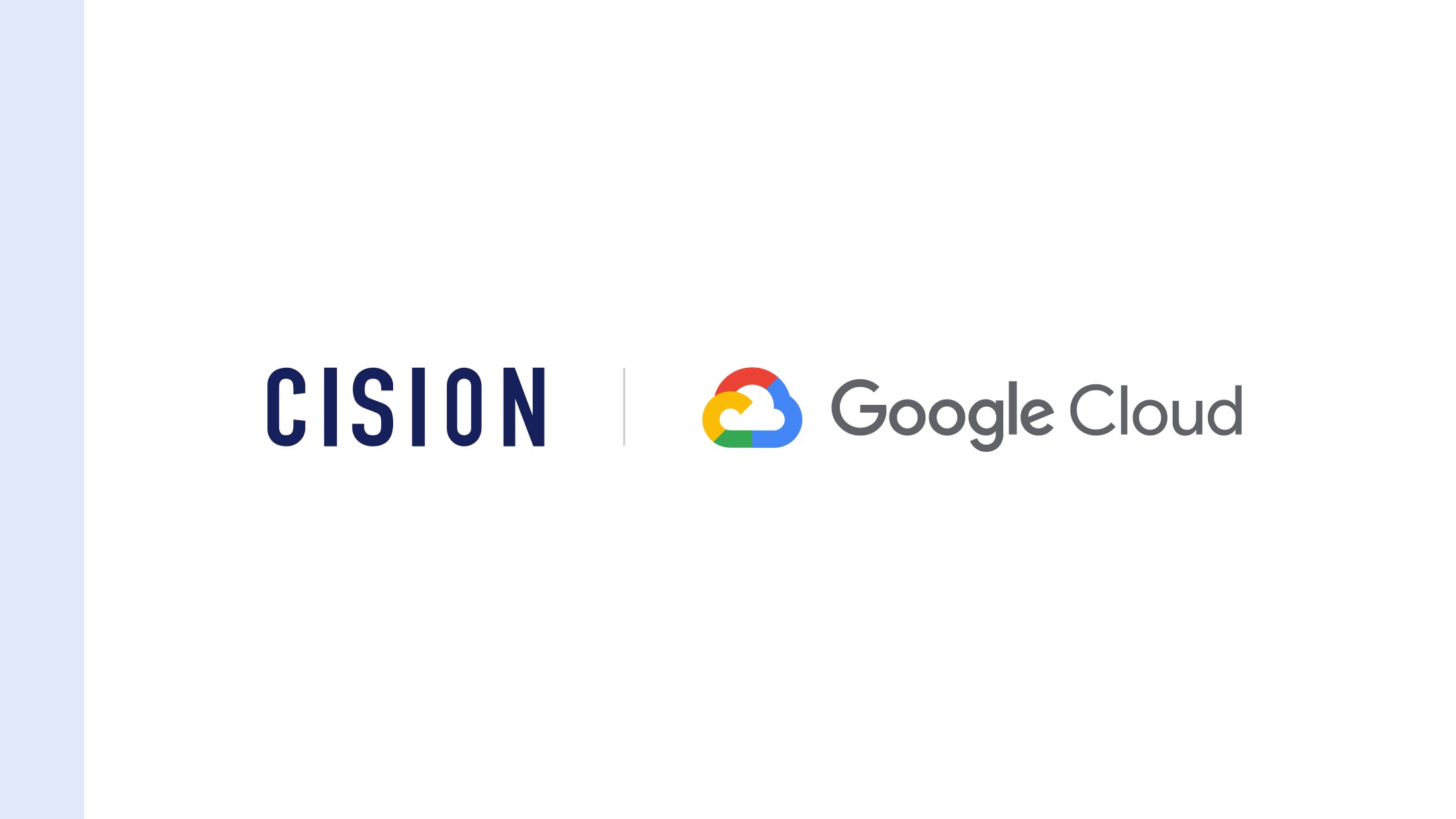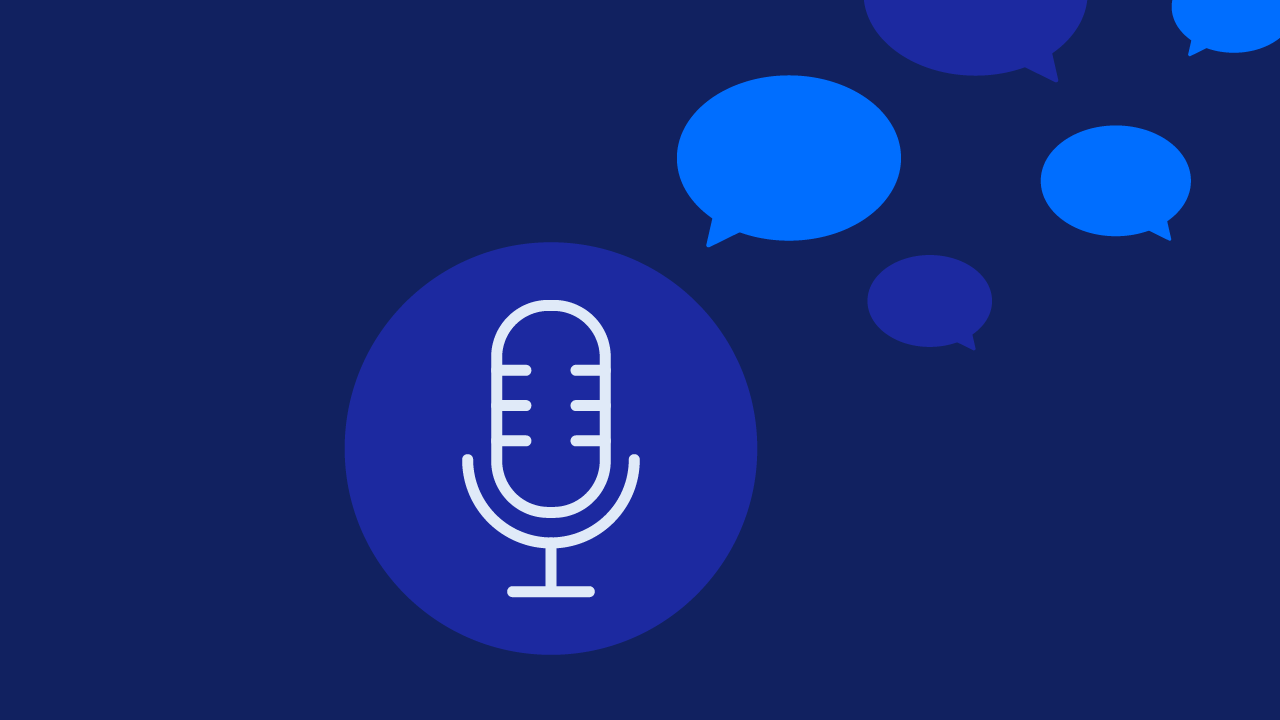The world of public relations is constantly evolving, and podcasting has emerged as a powerful channel for brand storytelling. While press releases and social media remain crucial, audio content offers unique opportunities to connect with audiences in ways traditional media can't match.
Whether you're looking to establish thought leadership or create versatile content, launching a podcast could be your next strategic move. You just need to have clear goals and a solid plan in place – which is exactly what we’re talking about here.
3 Reasons to Create Your Own Podcast
Podcasting isn't just another trend – it's a strategic tool that can transform your PR efforts. Here's why it deserves your attention:
- Deep Audience Connections: Unlike traditional PR channels, podcasts create an intimate, one-to-one connection with listeners. Your audience isn't just scanning headlines - they're spending 20, 30, or even 60 minutes with your content. That's valuable time toward humanizing your brand and building trust and credibility.
- Content Multiplication: Podcast content is incredibly versatile. One conversation can spawn blog posts and articles, social media snippets, audio or video clips, newsletter content, and thought leadership pieces. This multiplies your content output while maintaining consistent messaging across channels.
- Website Traffic and Lead Generation Engine: Strategic podcast content naturally drives traffic to your digital properties. By offering exclusive insights and resources related to episode topics, you're creating a direct pipeline to capture engaged audiences and leads.
"Audio storytelling humanizes a brand... takes listeners on a journey. The type of vulnerability and authenticity that boosts customer loyalty."
— Chip Rosales (@chiprosales) October 29, 2024
For our revenue-accountable friends, this matters because it turns thought leadership into $$.https://t.co/bgdQOJavxy
The Reality Check: What You're Geting Into With Your Own Podcast
Before rushing out to buy a microphone, it’s important to understand that launching a successful podcast requires careful planning of resources, responsibilities, and cross-team collaboration. Here's what you need to consider:
- Strategic Planning and Ownership: Determine which department owns the podcast strategy and how it aligns with broader marketing initiatives. Establish who makes final content decisions, how success will be measured, and how resources will be allocated.
- People and Content Management: Identify your hosts/co-hosts, considering time commitments and backup plans. Define processes and owners for the editorial calendar and show preparation, including research, scripting, and documentation.
- Guest and Production Management: Develop clear criteria for guest selection, accountability, and processes for outreach, preparation, and relationship management. Determine who is responsible for all the technical aspects including: recording and audio editing, distribution, equipment maintenance, and technical troubleshooting.
- Promotion: What is your promotion strategy? Determine how the podcast will integrate into other marketing channels and be executed across social media, website, and newsletters. You’ll also want to determine who will lead cross-promotional opportunities and supporting content creation.
- Resource Requirements: Be realistic about the resources needed to do it right. Estimate the weekly time commitments from team members, equipment and software costs, promotional budget (if any), and the training needs.
Success requires dedicated resources, clear ownership across all aspects, and strong attention to both content quality and technical execution. Before deciding to launch your own podcast, be sure you’ve considered all the factors to maintain consistent quality and grow your audience over time.

7 Steps to Start Your Own Podcast
So, is podcasting right for your brand? Only you can decide if it will help you achieve your PR goals. But if you're ready to dive in, here are seven steps to help you get started.
1. Define Your Podcast Strategy
Begin by establishing clear, measurable PR goals for your podcast. Consider what you want to achieve – whether it's building thought leadership, generating leads, or increasing brand awareness. Take time to identify your target audience and what makes them tick. Most importantly, determine your unique angle. What perspective or expertise can you bring to the conversation that others aren't? These foundational elements will guide every decision you make moving forward.
2. Craft Your Podcast Identity
Your podcast's identity needs to seamlessly integrate with your existing brand, while standing on its own in the crowded podcast landscape. Develop a name and visual identity that reflects your brand values, while being memorable and easily discoverable. Think about how your podcast will represent your brand's personality and values across all touch points, from artwork to episode descriptions.
3. Choose Your Format
The format you choose will set the tone for your entire show. Interview-style discussions can leverage industry connections and provide diverse perspectives. Industry news analysis positions you as a thought leader. Behind-the-scenes insights humanize your brand, while case study deep dives demonstrate expertise. Expert roundtables can create engaging discussions and showcase your network. Select a format that plays to your strengths and serves your audience's needs.
4. Build Your Content Calendar
Strategic planning is crucial for your long-term success. Map out three to six months’ worth of content in advance, balancing timely industry discussions with evergreen topics that remain relevant year-round. Schedule guests well ahead of time, considering their availability and your content themes. And you’ll want to build in flexibility for trending topics and create backup content for unexpected scheduling changes. Once you determine your publishing schedule, stick to it – whether it's weekly, every two weeks, or monthly. This consistency helps build audience loyalty.
Need inspiration for your episodes? Look to our 2025 PR and Comms Content Planning Calendar for timely topics and key events throughout the year.
5. Invest in Quality Equipment
Quality audio is non-negotiable for professional podcasting. Start with essential equipment: a reliable USB condenser microphone in the $100-200 range and professional headphones around $50-100. Familiarize yourself with free audio editing software like Audacity or GarageBand. Be sure you have a quiet recording space to ensure consistent sound quality. You can always upgrade your setup as your podcast grows.
6. Select Your Distribution Strategy
Your distribution strategy affects everything from analytics to growth potential. Evaluate hosting platforms based on their technical capabilities, analytics offerings, and pricing structures. Consider how each platform handles distribution to major podcast directories and social media integration. Look for features that will scale with your growth, such as unlimited storage and automated distribution. While budget matters, don't compromise on essential features that will support your long-term success.
7. Launch Your Promotion Plan
Promotion should begin well before your first episode drops. Integrate your podcast into your website with dedicated landing pages. Develop a coordinated social media strategy to build anticipation and engage potential listeners. Leverage your email marketing channels to notify existing audiences. Partner with industry influencers and complementary brands for cross-promotion. Remember, your launch is just the beginning – promotion should be an ongoing effort.
Best Practices for Podcast Success
Once you're up and running, here are some tips to help your podcast thrive:
Content Quality
The cornerstone of successful podcasting is consistently delivering valuable content. Research your topics thoroughly and prepare questions that guide meaningful conversations. Incorporating unique perspectives and expert voices can add depth to your discussions. Obviously, you’ll want to stay on top of industry trends to ensure your content remains relevant and timely. Keep your focus on providing actionable insights and discussions your audience will value.
Production Value
Professional production quality sets your podcast apart. Create polished intros and outros that become instantly recognizable to your audience. You'll want to maintain consistent audio levels throughout each episode and across your series. Edit your recordings thoughtfully to maintain pace and clarity, removing unnecessary pauses and tangents. Use music and transitions strategically to enhance the listening experience. Over time, you will have developed a signature sound that is associated with your brand.
Audience Engagement
Transform passive listeners into active community members. Create opportunities for audience participation by encouraging feedback and featuring listener questions in your episodes. Respond to comments across all platforms to build relationships with your audience. Facilitate community discussions around episode topics and highlight listener success stories. This two-way dialogue strengthens audience loyalty and provides valuable content ideas.
Content Optimization
Maximize the impact of each episode through strategic optimization. Write detailed show notes that serve as valuable standalone content. Create accurate transcripts to improve accessibility and searchability. Optimize all content for search engines with relevant keywords and descriptions. Include clear calls-to-action that guide listeners toward deeper engagement with your brand. Create a plan in advance for how you’ll repurpose each episode across multiple channels to extend its reach and value.
Strategic Promotion
Transform your podcast into a cornerstone of your PR efforts through thoughtful promotion across all channels. Integrate episode releases into your broader communications calendar, treating each one as a miniature campaign. Create compelling audio and video clips that capture attention in crowded social feeds. Develop a systematic approach to repurposing content – turn detailed interviews into thought leadership articles, transform key insights into infographics, and adapt episode themes for your newsletter content. Remember that different audiences consume content differently. By diversifying your promotional formats, you'll capture listeners who might miss your podcast in its original form.
Re-purposing content is a great way to get your name out there. A Podcast episode can equal: a written article, social media clips, social media text/visuals, quote posts, lead to a book & more. Rinse and repeat. Get an original piece of content and turn it into a content machine
— Robert P (@RobertPuharich) October 25, 2024
Measure and Improve
Success in podcasting requires a data-driven approach to continuous improvement. Establish a regular cadence for analyzing your podcast metrics, looking beyond basic download numbers to understand deeper patterns in listener behavior. Pay attention to episode completion rates, which sections prompt listeners to drop off, and which topics generate the most engagement. Track how your podcast influences broader PR metrics – from website traffic spikes after episode releases to increases in media inquiries and speaking opportunities. Identify which show notes generate the most clicks and which calls-to-action resonate strongest with your audience. This analytical approach allows you to refine your content strategy over time, focusing resources on what works best for your specific audience while demonstrating clear ROI to stakeholders.
Final Thoughts
Launching a podcast requires significant investment in time and resources, but the potential PR benefits make it worth considering. From deeper audience connections to versatile content creation, podcasting can become a cornerstone of your PR strategy.
Find out how CisionOne can help – from identifying hot topics for your discussions to measuring your success. Chat with one of our experts.







